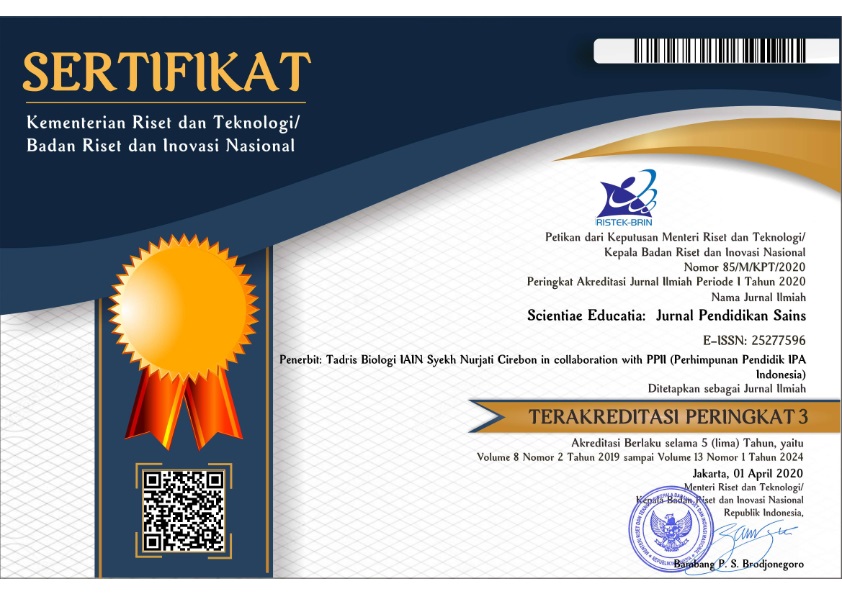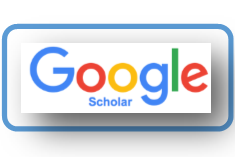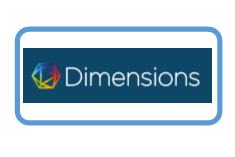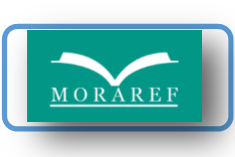The Improvement of Prospective Teachers' Life-long Learning during the Plant Diversity Course with 5E+e Inquiry
(1) Biology Education Study Program, FPMIPATI Universitas PGRI Semarang
(2) Science Education Study Program, Graduate School, Universitas Pendidikan Indonesia
(3) Department of Biology Education, Faculty of Mathematics and Natural Sciences Education, Universitas Pendidikan Indonesia
(4) Science Education Study Program, Graduate School, Universitas Pendidikan Indonesia
(*) Corresponding Author
Abstract
Not a few students who have difficulty interpreting the material being studied in terms of life encourage the need for a paradigm shift in science learning, which is directed at lifelong learning. In this paper, an entrepreneurship-oriented 5E (Engagement, Explain, Exploration, Elaboration, and Evaluation) inquiry learning program is developed, which is also often called 5E+e. This research investigates the improvement of lifelong learning for the prospective teachers during the 5E+e inquiry in the plant diversity course. The quasi-experimental method with a one-group pretest-postest design was used. The research subjects were taken by purposive sampling, namely the fifth-semester students of the Biology Education Study Program at one of the Teachers Institution in Central Java with 31 participants. Data were gathered using a questionnaire filled out by students before (pre) and after (post) the treatment of the 5E+e inquiry learning and observation. The data analysis was carried out in both quantitative and qualitative-descriptive manners to make a comprehensive conclusion. The results revealed that the average lifelong learning score of prospective teachers compiled with rubrics had increased between before (2.68) and after being given the program (3.26) with a maximum score of 4.00. Thus, it can be concluded that the entrepreneurship-oriented inquiry learning program applied to the plant diversity course can increase the lifelong learning of prospective teachers.
Keywords
Full Text:
PDFReferences
Ayu, N. A. K. (2017). Peluang Social Innovation dalam Revolusi Industri 4.0. Bagaimana perkembangannya di Indonesia?. Forbil Institute.
Bybee, R. W. (2009). The BSCS 5E instructional model and 21st century skills. The National Academies Board on Science Education.
Chang, W., & Koo, Y. (2017). Developing ‘masterity’: the ‘habitus’ of lifelong learning. Asia Pacific Education Review, 18(2), 243–252.
Cronquist, A., & Takhtajan, A. (1981). An integrated system of classification of flowering plants. Columbia University Press.
Cummins, P., & Kunkel, S. (2015). A global examination of policies and practices for lifelong learning. New Horizons in Adult Education and Human Resource Development, 27(3), 3–17.
Demirel, M., & Akkoyunlu, B. (2017). Prospective teachers’ lifelong learning tendencies and information literacy self-efficacy. Educational Research and Reviews, 12(6), 329–337.
El-Islami, R. A. Z., Nuangchalerm, P., & Sjaifuddin, S. (2018). Science process of environmental conservation : A Cross national study of Thai and Indonesian Pre-service science teachers. Journal for the Education of Gifted Young Scientists, 6(4), 72–80.
Gloria, R. Y. (2017). Efektivitas pembelajaran kapita selekta biologi berbasis masalah untuk membentuk habits of mind mahasiswa calon guru. Scientiae Educatia: Jurnal Pendidikan Sains, 6(1), 8–14.
Hayat, M. S., & Rustaman, N. Y. (2017). How is the Inquiry Skills of Biology Preservice Teachers in Biotechnology Lecture? Journal of Physics: Conference Series, 895(1), 1–7.
Ingham, H., Ingham, M., & Afonso, J. A. (2016). Participation in lifelong learning in Portugal and the UK. Education Economics, 25(3), 266–289.
Li, M. (2016). Developing skills and disposition for lifelong learning: Acculturative issues surrounding supervising international doctoral students in New Zealand Universities. Journal of International Students, 6(3), 740–761.
Löfgren, R., Schoultz, J., & Hultman, G. (2013). Exploratory talk in science education: inquiry-based learning and communicative approach in primary school. Journal of Baltic Science Education, 12(4), 482–496.
Marzano, R. J., Pickering, D., & McTighe, J. (1994). Assessing student outcomes: performance assessment using the dimensions of learning model. Association for Supervision and Curriculum Development.
Nasution, W. N. (2018). The effects of inquiry-based learning approach and emotional intelligence on students ’ science achievement levels. Journal of Turkish Science Education, 15(4), 104–115.
Ng, P. T. (2013). An examination of lifelong learning policy rhetoric and practice in Singapore. International Journal of Lifelong Education, 32(3), 318–334.
Nguyen, T. T. H., & Walker, M. (2014). Sustainable assessment for lifelong learning. Assessment and Evaluation in Higher Education, 41(1), 1–15.
Nuraeni, E., Redjeki, S., & Rahmat, A. (2015). Perkembangan literasi kuantitatif mahasiswa biologi dalam perkuliahan anatomi tumbuhan berbasis dimensi belajar. Jurnal Ilmu Pendidikan, 21(2), 127–135.
Owusu-Agyeman, Y. (2017). Expanding the frontiers of national qualifications frameworks through lifelong learning. International Review of Education, 63(5), 657.
Özgür, S. D., & Yılmaz, A. (2017). The effect of inquiry-based learning on gifted and talented students’ understanding of acids-bases concepts and motivation. Journal of Baltic Science Education, 16(6), 994-1008.
Preece, J. (2013). Africa and international policy making for lifelong learning: Textual revelations. International Journal of Educational Development, 33(1), 98–105.
Regmi, K. D. (2015a). Can lifelong learning be the post-2015 agenda for the least developed countries? International Journal of Lifelong Education, 34(5), 551–568.
Regmi, K. D. (2015b). Lifelong learning: Foundational models, underlying assumptions and critiques. International Review of Education, 61(2), 133–151.
Rustaman, N. (2005). Perkembangan penelitian pembelajaran berbasis inkuiri dalam pendidikan sains. In Himpunan Ikatan Sarjana dan Pemerhati Pendidikan IPA Indonesia Bekerjasama dengan FPMIPA Universitas Pendidikan Indonesia, (pp. 22–23). Bandung: Fakultas Pendidikan Matematika dan Ilmu Pengetahuan Alam Universitas Pendidikan Indonesia.
Rustaman, N. (2016). Pemberdayaan entrepreneurship : Implementasi teori-U dalam bioteknologi praktis berbasis STEM. In Seminar Nasional Sains dan Entrepreneurship III Tahun 2016 “Reorientasi Bioteknologi dan Pembelajarannya Untuk Menyiapkan Generasi Indonesia Emas Berlandaskan Entrepreneurship", (pp. 1–14). Semarang, Indonesia: Program Studi Pendidikan Biologi FPMIPATI Universitas PGRI Semarang.
Shan, H. (2017). Lifelong education and lifelong learning with Chinese characteristics: a critical policy discourse analysis. Asia Pacific Education Review, 18(2), 189–201.
Sriyati, S., Rustaman, N., & Zainul, A. (2010). Penerapan asesmen formatif untuk membentuk habits of mind mahasiswa biologi. In Seminar Nasional Biologi "Pembelajaran Sains dan Perkembangan Biologi di Era Molekuler", (pp. 1–14). Semarang, Indonesia: FPMIPA Universitas Negeri Semarang (UNNES).
Stone, E. M. (2014). Guiding students to develop an understanding of scientific inquiry : a science skills approach to instruction and assessment. Life Sciences Education, 13(1), 90–101.
Tortop, H. S. (2015). A comparison of gifted and non-gifted students’ self-regulation skills for science learning. Journal for the Education of Gifted Young Scientists, 3(1), 42–57.
Wang, M., Yuan, D., & Weidlich, M. (2017). Do the demands of the global forces shape local agenda? An analysis of lifelong learning policies and practice in China. Asia Pacific Education Review, 18(2), 219–226.
Wheeler, L. B., Bell, R. L., Whitworth, B. A., & Maeng, J. L. (2015). The Science ELF: Assessing the inquiry levels framework as a heuristic for professional development. International Journal of Science Education, 37(1), 55-81.
Zubaidah, S., Fuad, N. M., Mahanal, S., & Suarsini, E. (2017). Improving creative thinking skills of students through differentiated science inquiry integrated with mind map. Journal of Turkish Science Education, 14(4), 77–91.
DOI: 10.24235/sc.educatia.v9i2.7476
Article Metrics
Abstract view : 9 timesPDF - 5 times
Refbacks
- There are currently no refbacks.
Scientiae Educatia: Jurnal Pendidikan Sains indexed by:

This work is licensed under a Creative Commons Attribution 4.0 International License.
Stat Counter (Link)

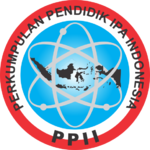

1.png)
